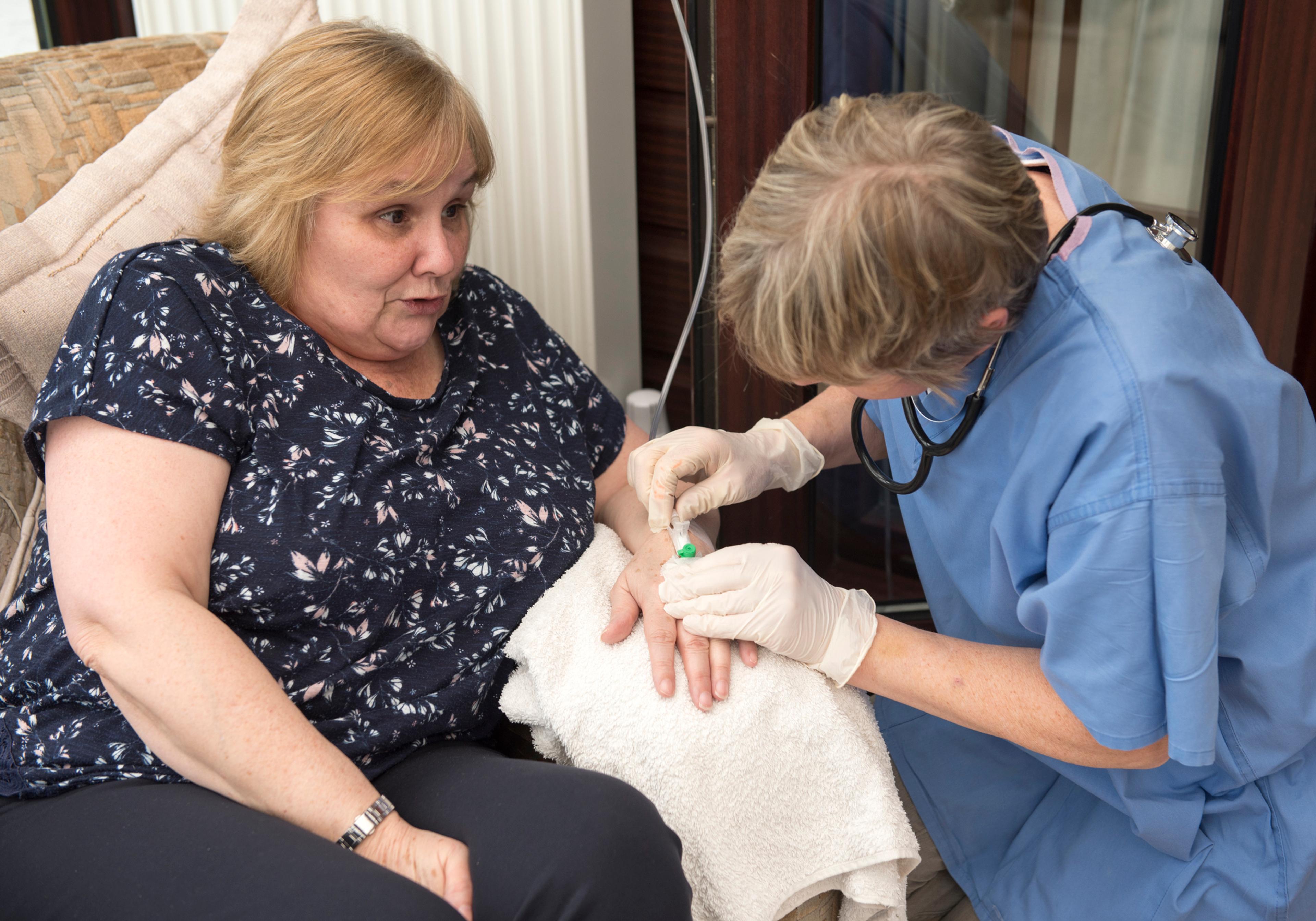An Insider’s Perspective: 9 Questions I’ve Been Asked at the Pharmacy Counter
Nabeel Qureshi
| 5 min read
Clinical Pharmacist

It’s happened to everyone: You’re prescribed a medication, pick it up at the pharmacy, go home and then realize you don’t know what to do next. Pharmacists like me are here to help you. That’s because we’re not here just to supply you with medications you need, but also to help you understand clearly what they do and exactly how you should take them. Pharmacists use their years of training to prioritize and fill multiple prescriptions for many patients at once. We check whether the specific medications you’re being prescribed are the best choices to help you feel better, as well as review drug allergies, interactions, dosing and other factors that might affect how well your medicines work for you. Although you may think of a pharmacist as a cashier who rings up your medicine, there’s a lot more to my job than just that. Pharmacists have a unique perspective because they see prescriptions from all kinds of different doctors—an insight that physicians don’t even have. We’re well-equipped to determine what may be normal versus abnormal. Just as you would not want your surgeon to rush, it’s not a great idea to ask your pharmacist to quickly fill your prescriptions. Doing so can lead to errors and pose serious hazards to your health. Here are a few of the most common kinds of questions I get asked on a regular basis. If you don’t know the answer to these, make sure you ask your pharmacist:
- Will my insurance cover this? We can usually answer this at the counter for you, but knowing about your plan’s drug list or formulary and prescription coverage is part of being a well-informed patient. Try to reference your drug coverage details at bcbsm.com or on the Blue Cross mobile app ahead of time if you’re able. If not, I’ll do what I can to get the answer for you. It’s also a good idea to ask your doctor about your medication. As a pharmacist, I can’t prescribe you a new medication if the one your doctor prescribed is not covered.
- That’s so expensive. Do I have any other options? Your pharmacist will be able to explain what generic drugs could work (generics are the less expensive, non-name-brand versions of medications). Using generics over name-brand drugs can save you up to 90 percent, depending on the medication. Sometimes, you can also save costs by taking two medicines instead of one since combination products are often more expensive than the individual generic drugs.
- What is the best way to store these medicines? How often do I need to take them? Both answers depend on the drug. Typically, you should keep your medicines at room temperature in places that aren’t very humid; for example, your bedroom rather than the kitchen or bathroom. Dosage information is usually printed on your medication label. When a pharmacist asks if you have any questions, take the time to ask them. We want to help you feel better and answer all your questions, so you worry less when you’re home.
- I’m experiencing “X” side effect. Is that normal? Most people don’t do this, but make sure you read the information that comes with your prescription—it’s an easy way to anticipate side effects. You can also ask questions at the pharmacy. If you experience a side effect that’s not listed, call the pharmacy or your physician. Ideally, you should try to discuss possible side effects with your doctor when he or she prescribes the medicine. If the side effect presents emergency conditions (like trouble breathing or an abnormally high fever), always dial 911 or visit the emergency room right away.
- I missed a dose. Now what? A lot of research goes into determining the best dosing for a medication. It’s better if you always remember to take your medicine and take it on time, but everyone forgets sometimes. For some medications, such as a transplant drug, this can be a serious issue. But for other medications, such as a topical cream, it might be less worrisome. If you remember soon after you were supposed to take it, you can usually just have the dose then. If it’s close to the time for your next dose, it’s best to wait until then and resume your normal dosing schedule. This advice varies a lot by medication, so ask your pharmacist what to do in these situations.
- My medication looks different than last time. Is it the same? Yes, probably. Manufacturers change the look of medication frequently, but it’s best to verify with the pharmacist to be sure.
- How do I measure this medication? A few helpful reminders include:
- One teaspoon is 5 milliliters (mLs), whereas one tablespoon is 15 milliliters (mLs).
- One cc is the same as one milliliter (mL).
- Pharmacists can usually provide an oral syringe or measured medicine spoon if you ask for it.
- Should I stop taking my medicine if I feel better? Usually, no. But ask your doctor, because this varies by medication and situation. Sometimes you might not feel an infection or your blood pressure being high, but it still needs to be treated.
- How do I dispose of this medication? Although some drugs can be thrown out in the trash (be sure to mix them with kitty litter or used coffee grounds to make it tough for someone to find and take the pills), many should be disposed of by professionals. The Drug Enforcement Administration offers several sites to drop off your unused medications, and Drug Take Back Day is an opportunity to rid your medicine cabinet of unused meds bi-annually. The Food and Drug Administration’s guidelines are also a good reference if you’re trying to dispose of your medicine.
If you have any other questions for pharmacists like me, comment below, and we’ll do our best to answer them. Want to learn more insight from behind the counter? You may also like these posts:
- Saved by a Pharmacist: How One Patient Avoided a Double Dosage Mistake
- How Do I Know If I’m Allergic to Certain Medications?
- How Do Vaccines Actually Work? A Pharmacist Explains
Photo credit: Shutterstock





